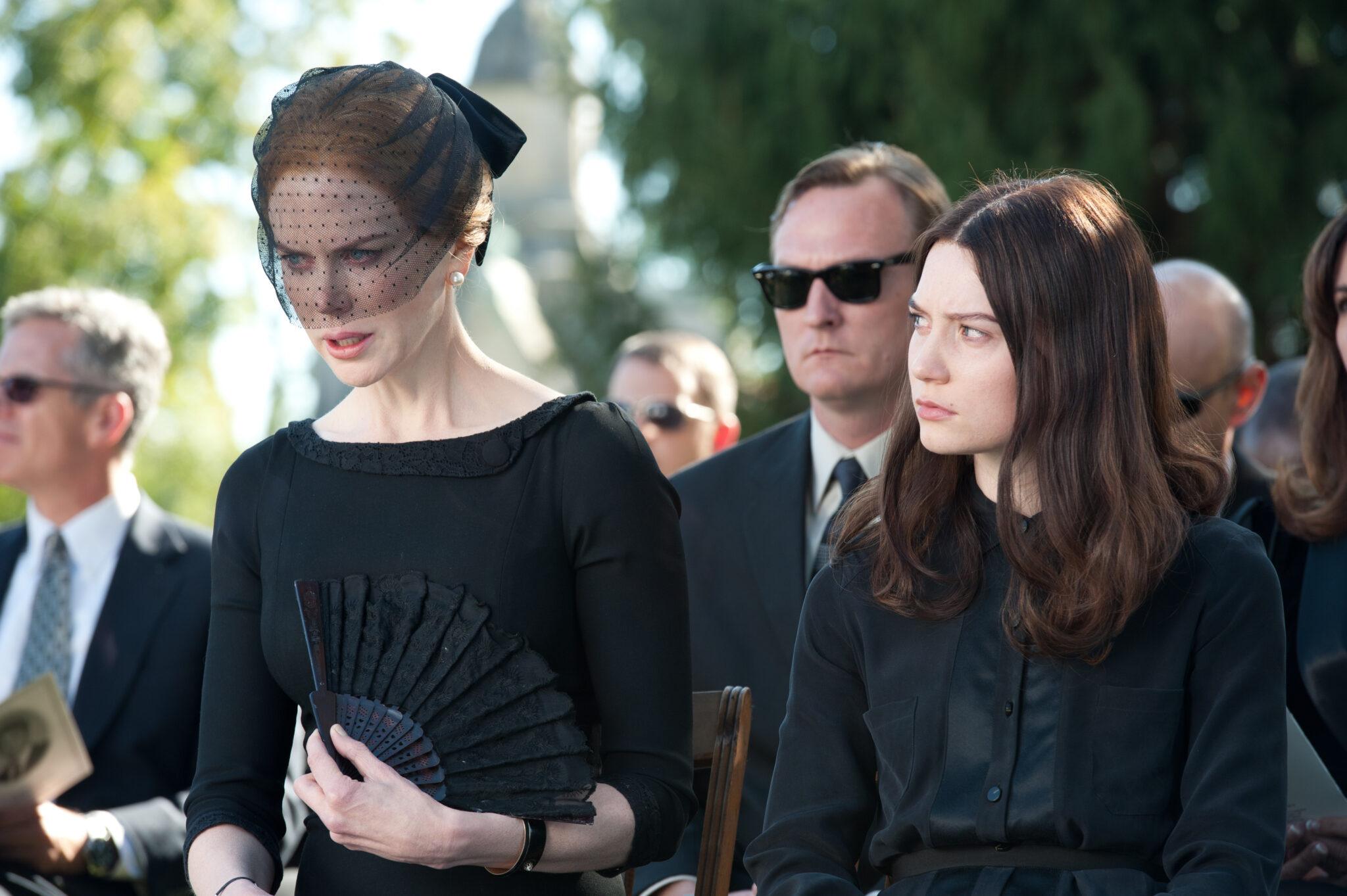by Laura Studarus
2013’s slow-moving horror film Stoker is the story of a family where seemingly nothing happens. Set in an upper-class Connecticut community in a zip code-sized mansion, the plot focuses on India Stoker (Mia Wasikowska), a teenager with an existence as languid as a Sylvia Plath poem. She seems content with her life as an outsider, until father dies in a car accident on her 18th birthday. Understandably, she draws inward to mourn the loss of their close bond, lecturing the household about grieving traditions across the world with a Wednesday Addams–level of devotion. Meanwhile her mother Evelyn (Nicole Kidman) takes the far more casual approach of flirting with her long-lost uncle Charles (Matthew Goode), who mysteriously appears at the funeral, seemingly to help the two women establish a new normal. He moves in, and it’s all very dower and domestic, until the trio’s tenuous relationships go sideways.
May a life filled with nothing was safer. As viewers quickly discover, slow moving something can be truly terrifying.
Of course, given that the film was also the English language debut of director Park Chan-wook (Old Boy, The Thirst, The Handmaiden), along with the sun-dappled shots of trees blowing in the breeze — and a daddy longlegs crawling over a saddle shoe — comes the expectation that things would turn dark in a hurry. And certainly, that happens multiple times. See: India placidly eating ice cream, unaware that she’s sitting next to the freezer containing their missing housekeeper, or Charles emerging from the dark to strangle the one person who could give away his twisted game.
But those are just the predictable sources of jump-scares. The discovery that your long-lost uncle has sinister, incestuous motives , would be pedestrian horror film fodder if it wasn’t for Wasikowska’s gradual transformation driving the film’s tension. Without her nuanced performance, Stoker could have been a cautionary tale of a teen being dealt a truly disturbing hand. But instead we’re brought along with her journey of discovery, first rejecting Charles’ attempts to become a stand-in father figure, to morbid curiosity about the man who drives behind her bus to make his presence known, and doesn’t bother to confront her after she stabs her bully classmate in a fit of rage. (Leading to the darkly funny close-up of her sharpening a blood-stained pencil.)
If good old uncle Charlie is flirting with Lolita territory, though, then India is diving headfirst into her Electra complex. The discomfort of misguided sexuality drives much of the film’s undercurrent of fear, from Charlie purring “I want to know my brother’s wife,” (much to India’s horror) to India seducing a classmate as a stand-in for her uncle’s affections. It’s there where she hits a character pivot point, when Charlie shows up and helps her commit her first murder.
Not that India seems to mind. She’s equally as turned on by the blood as she is the implications of her uncle’s actions — a cocktail of emotion Wasikowska brilliantly downplays with only the lightest flicker of joy as she lies to the police about the disappearance the next day. Ultimately India is given two choices: to rail against her current circumstances, or to do nothing — a slide into moral ambivalence that is perhaps the film’s most shocking turn of all. What if the only way out is by embracing your rotten nature? It’s the philosophical equivalent of realizing the call is coming from inside the house.
It’s also an idea that gets blown out of the water by the film’s grisly third act, when tension is replaced with a bloodbath. Freed from masking, Charlie acts every inch the psychopath, celebrating his ability to inflict pain. However, India’s stoic carriage is proved to be just that, the personality of someone who, having been shown the way, is able to eliminate anything and anyone in her path—and a bystander, seemingly just for fun.
It’s there that Stoker succeeds by interjecting another level of tension before its final moments. Why dabble in depravity when you can embrace it? And what does it matter when everyone seems to be playing their own game? Are we watching a character freeing herself from those who seek to put her in a box and dictate who she can become? Or the beginning of another bloody chapter? And how many other Indias are there in the world? It’s a heavy lingering thought.
But then again, it might be nothing.










